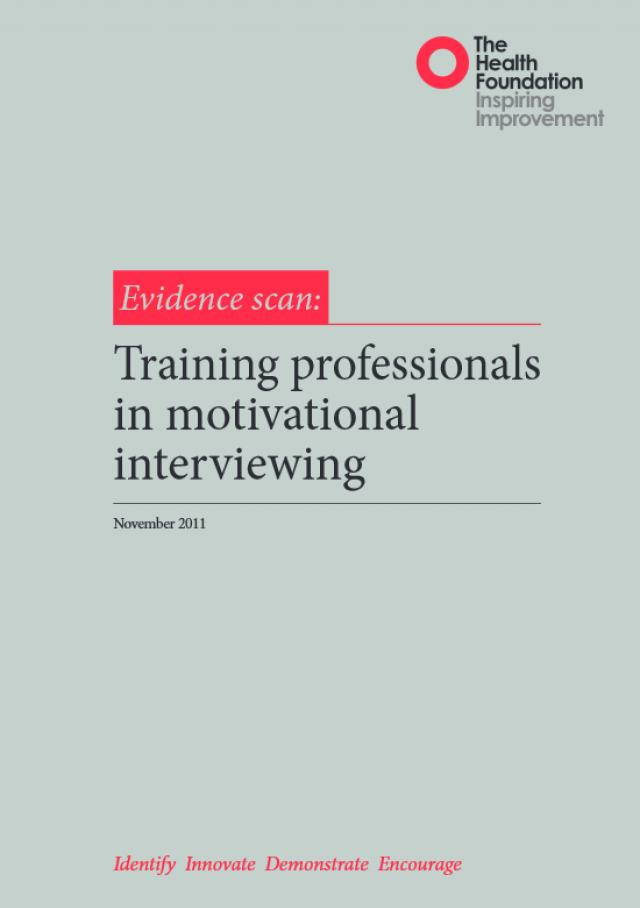Training professionals in motivational interviewing
November 2011
About 1 mins to read

Key points
- It is possible to train professionals and lay people to offer motivational interviewing. There is relatively little research contrasting different training techniques.
- Little research is available about the characteristics of ‘good’ motivational interviewers. Some studies suggest empathy and listening skills as core features, as well as being a good role model in terms of healthy behaviours.
- Aptitude for and appreciation of behaviour change approaches in interviewers may be more important than demographic characteristics.
- Research about medical educators more generally suggests that respect, active listening and empathy, communication skills and constructive challenging and feedback are all essential, but the extent to which these characteristics are also important for motivational interviewing trainers remains uncertain.
Motivational interviewing draws on people’s intrinsic motivation to change their behaviour and improve their health.
The skills of the professionals offering motivational interviewing may influence its success. This evidence scan summarises what is known about how best to train professionals to use this technique.
Work with us
We look for talented and passionate individuals as everyone at the Health Foundation has an important role to play.
View current vacanciesThe Q community
Q is an initiative connecting people with improvement expertise across the UK.
Find out more

